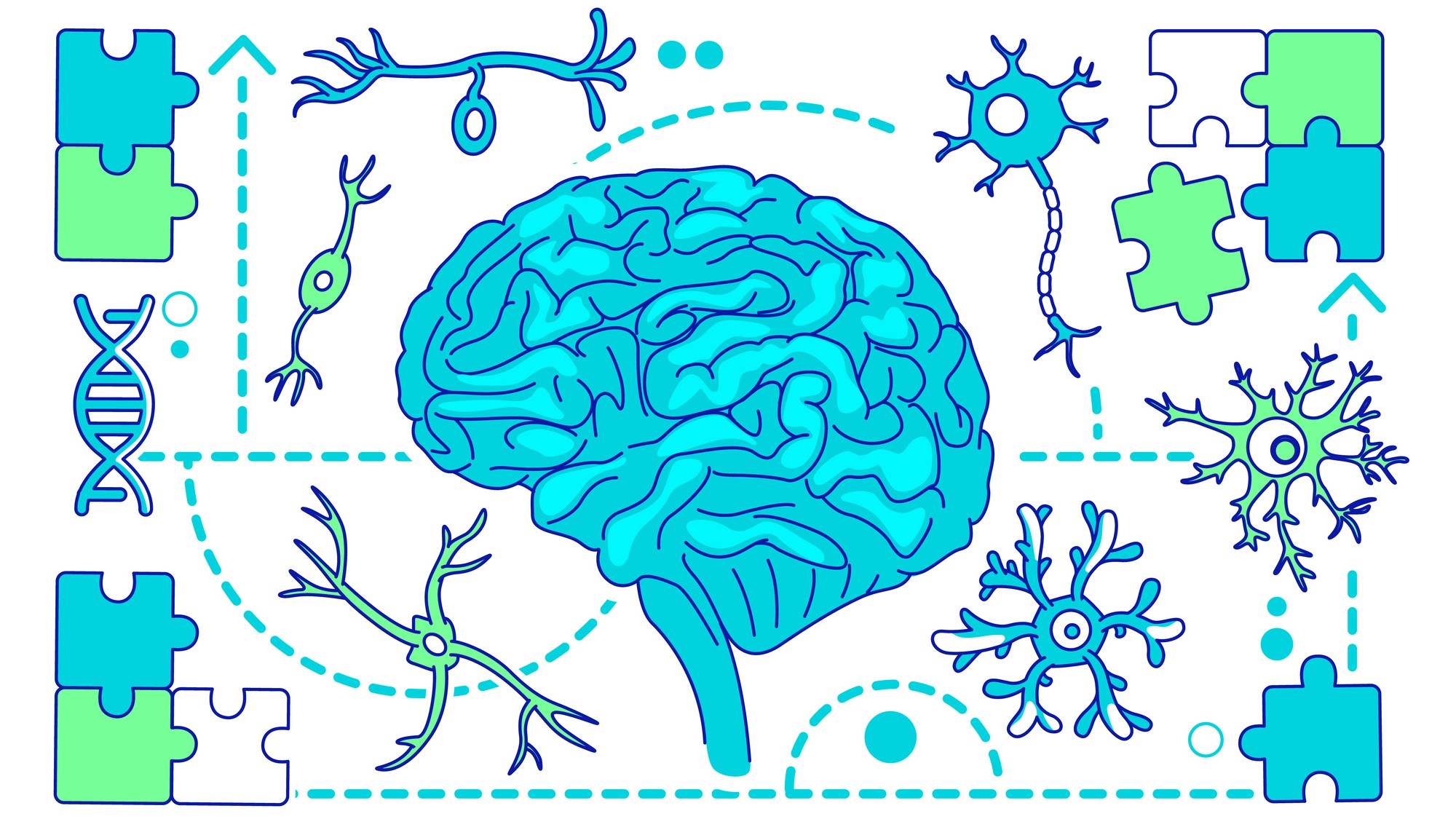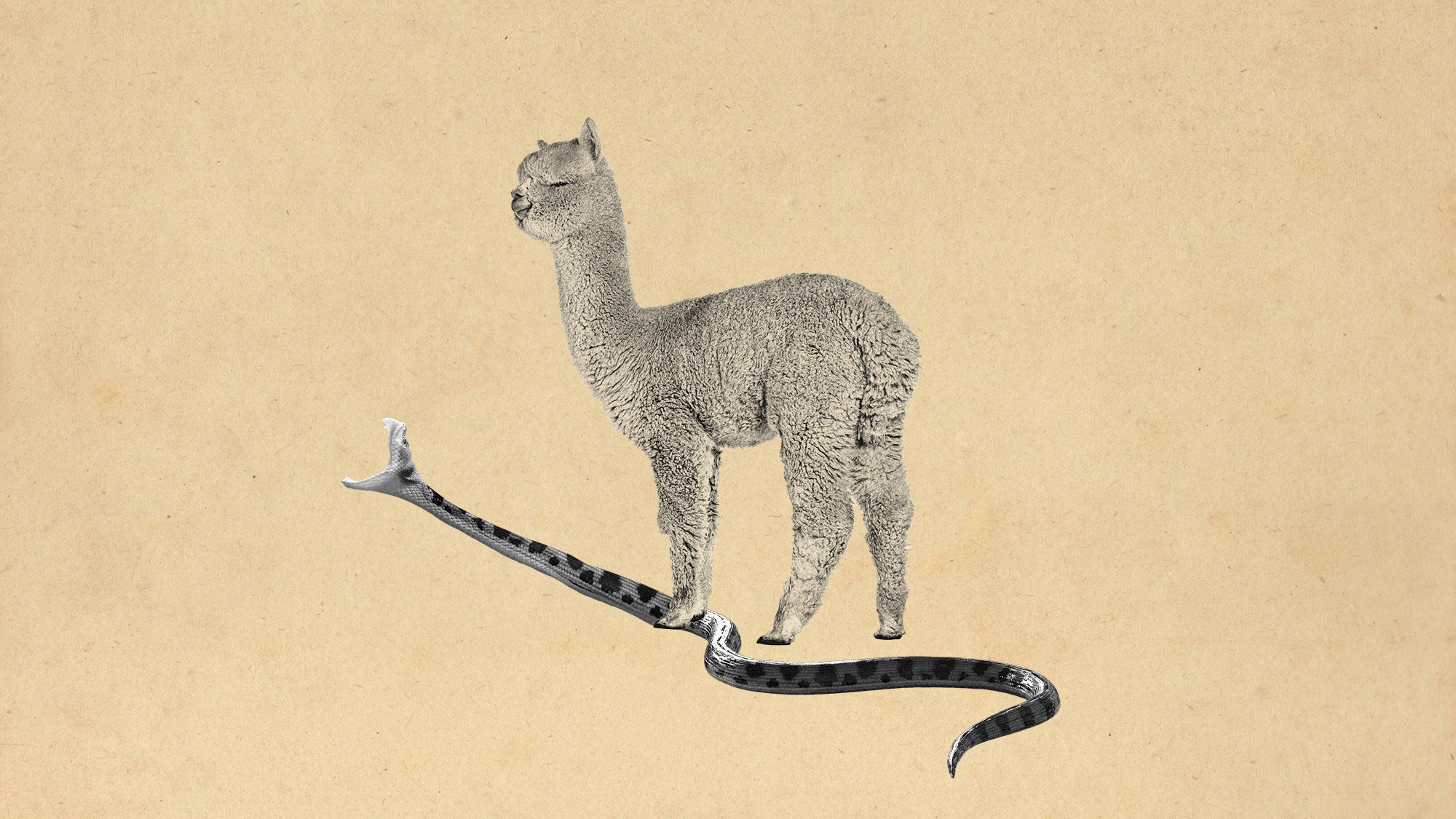Human evolution may be responsible for autism rates
Neurodiversity and a complex brain may go hand in hand


A free daily email with the biggest news stories of the day – and the best features from TheWeek.com
You are now subscribed
Your newsletter sign-up was successful
Autism spectrum disorder (ASD) may be the result of millions of years of evolution. Rapid neuronal evolution in humans is likely ASD’s genetic cause, new research suggests. Though autism can cause certain developmental difficulties, the evolution of genes may have contributed to humans’ complex minds today.
Your brain on genes
Autism’s “exceptionally high prevalence” in humans may be a “direct result of natural selection,” said a study published in the journal Molecular Biology and Evolution. The development of ASD in humans is likely a result of the “peculiar bargains evolution struck to make us human,” said ZME Science.
The study found that the “most abundant type of outer-layer brain neurons, called L2/3 IT neurons, evolved exceptionally quickly in the human lineage compared to other apes,” said a news release about the study. This “coincided with major alterations in genes linked to autism — likely shaped by natural selection factors unique to the human species.” These genomic elements remained “relatively stable throughout the rest of mammalian history,” said Newsweek.
The Week
Escape your echo chamber. Get the facts behind the news, plus analysis from multiple perspectives.

Sign up for The Week's Free Newsletters
From our morning news briefing to a weekly Good News Newsletter, get the best of The Week delivered directly to your inbox.
From our morning news briefing to a weekly Good News Newsletter, get the best of The Week delivered directly to your inbox.
Scientists also agree that neurological conditions like autism and schizophrenia are probably a uniquely human condition. It is “very rare to find behaviors associated with the disorders in non-human primates,” said Neuroscience News. Also, “behaviors associated with those disorders generally involve cognitive traits like speech production and comprehension that are either unique to or much more sophisticated in humans.” The evolution of autism “isn’t about one rogue mutation,” said ZME Science. Instead, it is “about dozens of small changes acting together, nudging the baseline wiring of human brains.” It is likely that “natural selection actively favored these changes, even though they came with trade-offs.”
Cause and effect
Approximately one in every 31 children is diagnosed with autism, according to the Centers for Disease Control and Prevention. Scientists have known for a while that genetics is likely the largest contributing factor to being diagnosed with ASD. “Several genes seem to be involved in autism spectrum disorder,” said the Mayo Clinic. Many of these genes are linked to developmental delays, which raises questions as to why evolution may take this path.
Although the definitive reason is unclear, researchers have ideas. For one, the “evolution of autism-related genes slowed early brain development or expanded language capacity, extending the time window for learning and complex thought in childhood,” said Newsweek. This “extended development may have offered an evolutionary advantage by fostering more advanced reasoning skills.” Essentially, “some of the same genetic changes that make the human brain unique also made humans more neurodiverse,” Alexander L. Starr, the paper’s lead author, said in the release.
There have also been many theories about the factors that increase the risk of autism. Researchers have been looking into various environmental factors like “infections, medicines, complications during pregnancy or air pollutants,” said the Mayo Clinic. Some have also claimed that vaccines play a role in causing autism spectrum disorder, though “many well-done research studies show no link between autism spectrum disorder and any vaccines.”
A free daily email with the biggest news stories of the day – and the best features from TheWeek.com
Devika Rao has worked as a staff writer at The Week since 2022, covering science, the environment, climate and business. She previously worked as a policy associate for a nonprofit organization advocating for environmental action from a business perspective.
-
 How the FCC’s ‘equal time’ rule works
How the FCC’s ‘equal time’ rule worksIn the Spotlight The law is at the heart of the Colbert-CBS conflict
-
 What is the endgame in the DHS shutdown?
What is the endgame in the DHS shutdown?Today’s Big Question Democrats want to rein in ICE’s immigration crackdown
-
 ‘Poor time management isn’t just an inconvenience’
‘Poor time management isn’t just an inconvenience’Instant Opinion Opinion, comment and editorials of the day
-
 Scientists are worried about amoebas
Scientists are worried about amoebasUnder the radar Small and very mighty
-
 Metal-based compounds may be the future of antibiotics
Metal-based compounds may be the future of antibioticsUnder the radar Robots can help develop them
-
 A Nipah virus outbreak in India has brought back Covid-era surveillance
A Nipah virus outbreak in India has brought back Covid-era surveillanceUnder the radar The disease can spread through animals and humans
-
 Deaths of children under 5 have gone up for the first time this century
Deaths of children under 5 have gone up for the first time this centuryUnder the radar Poor funding is the culprit
-
 A fentanyl vaccine may be on the horizon
A fentanyl vaccine may be on the horizonUnder the radar Taking a serious jab at the opioid epidemic
-
 More adults are dying before the age of 65
More adults are dying before the age of 65Under the radar The phenomenon is more pronounced in Black and low-income populations
-
 Scientists have developed a broad-spectrum snake bite antivenom
Scientists have developed a broad-spectrum snake bite antivenomUnder the radar It works on some of the most dangerous species
-
 Covid-19 mRNA vaccines could help fight cancer
Covid-19 mRNA vaccines could help fight cancerUnder the radar They boost the immune system
